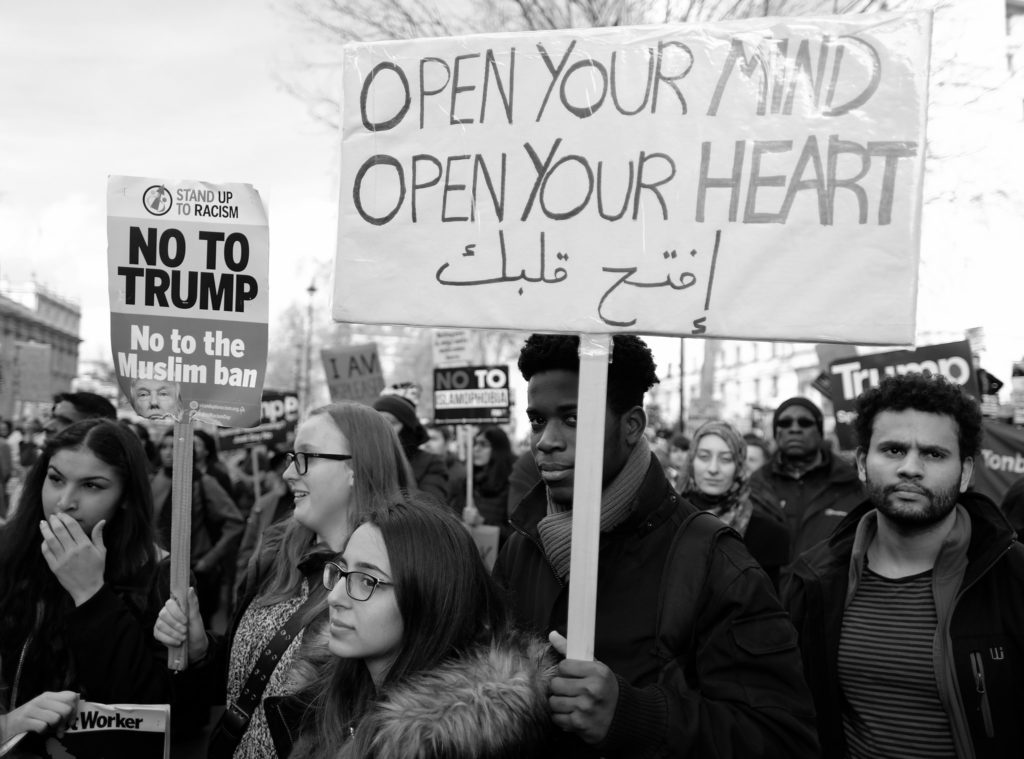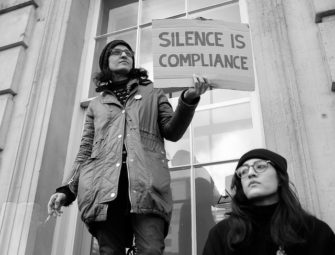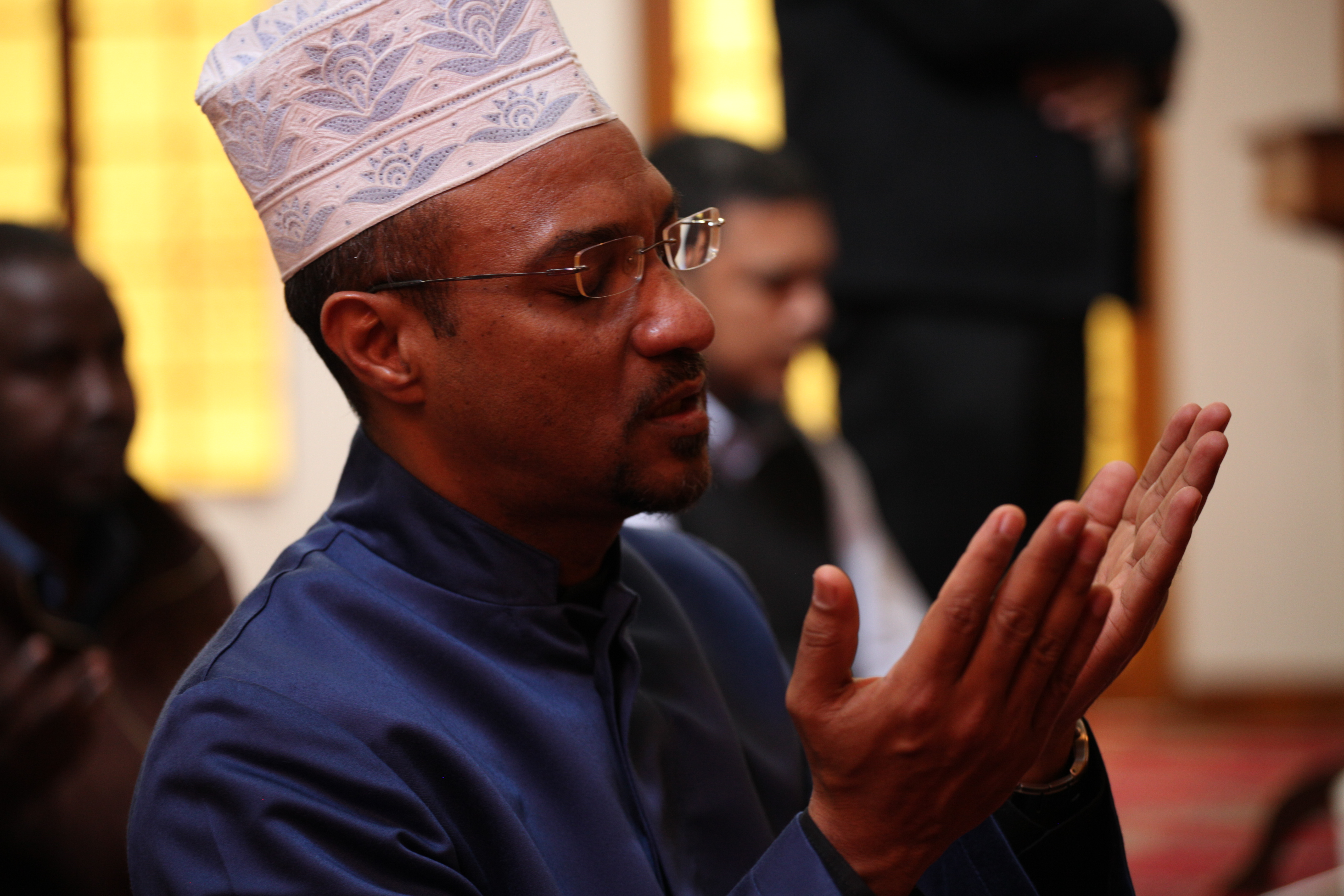
The current plight of Muslims and other minorities in the United States of America could be regarded as a kairos moment: a felicitous moment to reflect on the crisis that we are faced with, and also an opportune moment in which supplication and prayer can be central means for individuals and communities to find hope and solace. The outpouring of solidarity elicited over the past few months, as witnessed in interfaith prayer services, heartfelt expressions of compassion, and the practice of welcoming the stranger, accentuates the possibilities that can emerge from a time such as this.
Supplication and prayer hold great value in Islam and other religions and are an integral part of the life of the conscientious believer. They are means of communication and dialogue with God and something that conscientious believers constantly pursue.
In the secular age we live in, supplication and prayer seem to have lost their efficacy and charm. Yet the impulse to pray is one of the most innate of human behaviors—especially during times of crisis—albeit in different ways depending on one’s tradition. Prayer keeps us real and humble by making us realize that even though our human agency is important, there are factors in our lives that are beyond our control. This is not to say that we simply pray and wait for miracles to fall from heaven—because prayer without action is imprudent, for human beings shall have that for which they strive (Q53:39).
Prayer is the consciousness of spirit and it is a powerful tool that can be used to influence social change. In fact, I believe that our efforts as social justice activists become more meaningful if they emerge from a spiritually purified and a non-avaricious heart. Without a solid spiritual foundation, social justice activism can unwittingly become a self-fulfilling quest for egomania, self-enrichment, and the feeding of the base desires of the carnal self. In Islam we see this challenge expressed in the notion of jihad al-nafs, which is, in mystical traditions of Islam, the greatest form of jihad. It is the spiritual struggle to purify the soul and refine the disposition. The enduring challenge facing the person of faith who is committed to social justice struggles is how to maintain the mizan, i.e. a healthy balance between individual spiritual growth and purification and more traditional methods of frontline social justice activism.
Prayer to Overcome Intolerance
The highest form of prayer embraces the other. It is the most powerful and holy thing one can do. The Islamic and Christian scriptures highlight the importance of embracing difference and loving the other. In the Christian tradition at the last judgment, Jesus (pbuh) separates the sheep from the goats and says to those sitting at his right hand, “Come, you that are blessed by my Father, inherit the kingdom prepared for you from the foundation of the world: for I was hungry and you gave me food, I was thirsty and you gave me something to drink, I was a stranger and you welcomed me, I was naked and you gave me clothing. I was sick and you took care of me. I was in prison and you welcomed me.” When they inquire as to when they did this, Jesus answered: “Truly I tell you, just as you did it to one of the least of these who are members of my family, you did it to me” (Matthew 25:11-40, NRSV). In the Islamic tradition, there is a similar prophetic tradition (hadith) and the Qur’an echoes a similar sentiment, that when the oppressed are fed and cared for, it is also for the love of God (Q76:8-9).
By entertaining strangers we recognize that we are all created in the image of God and we are continually lifted up by the love that abounds. This love that is fostered through struggle, solidarity and action is what Paulo Freire refers to as “radical love.” According to Freire, radical love is “never about absolute consensus, or unconditional acceptance, or unceasing words of sweetness, or endless streams of hugs and kisses. Instead, it is unconstructed, rooted in a committed willingness to struggle persistently with purpose in our life—and to intimately connect that purpose to what it means to be human” (34). Simply put, radical love is about a peaceful, empathetic and courageous commitment to the other.
Too often we have a distortion of spatiality, a separation of my group and myself from the other. This promotes troubling agendas and it is what I like to call “sectarian justice.” I have written elsewhere that, as a Muslim scholar, I find myself instinctively drawn to the biblical text of Hebrews 13:2: “Be not forgetful to entertain strangers, for thereby some have entertained strangers unawares.” From the vantage point of semantics, it is striking to note that the Greek equivalent of the English “entertain strangers” is philoxenia. The first element of the word is philo, which means love or friendship and thus the passage means more than hospitality. Philoxenia is therefore not merely a sentimental response to the “other,” but truly a “love of strangers” as opposed to its antonym xenophobia, which translates as “fear or hatred of strangers.”

It is philoxenia that I have found expressed in the outpouring of solidarity with the Muslim community during this time of crisis. I have been inspired and deeply moved by the deluge of support and solidarity that the Muslim community has received from their American neighbors. The example of the Jewish rabbi who visited the imam of the burnt down Texas mosque and offered him the keys to the synagogue for Muslims to pray in was truly inspirational and perhaps unprecedented. Every Friday we have had large numbers of people from various faiths joining our congregational service at the Islamic Center of Michiana, Indiana. Furthermore, I have been invited to pray at an Interfaith Service of Solidarity with Refugees and the Muslim community at St. James Episcopal Cathedral in South Bend, Indiana, as well as other interfaith events. This is an expression of prophetic theology, where religion sees its role as witness to its values and highest ideals in the social realm. This form of theology is distinct from state theology and church theology in the South African Kairos document, which challenges state-sanctioned discrimination and violence as well as church complicity during the apartheid years.
Even as I seek to live by a prophetic theology with a spirit of philoxenia by participating in the weekly Friday congregational prayer services at the Islamic Center of Michiana, and by joining protests and interfaith services of solidarity, it has been a difficult personal decision since I am not a US citizen. However, I took the decision to be active and present during this crisis because I am a peace studies scholar, a Muslim religious leader, and a nonviolent activist, and I am compelled to speak out against the growing threat of Islamophobia, racism, xenophobia, anti-Semitism and all other forms of assault on the dignity of others.
I see the current charged political atmosphere in the US as a kairos moment—a moment of truth and of opportunity—an opportunity that if seized upon, may transform the US into a more vibrant democracy and a more just and caring society.

